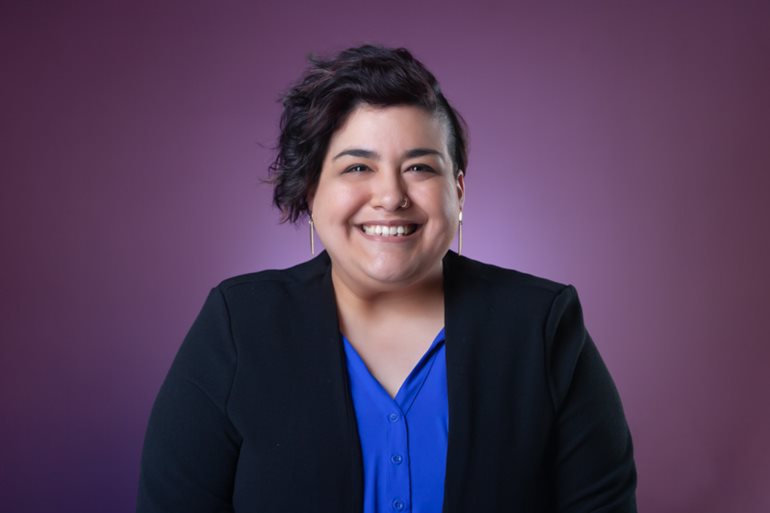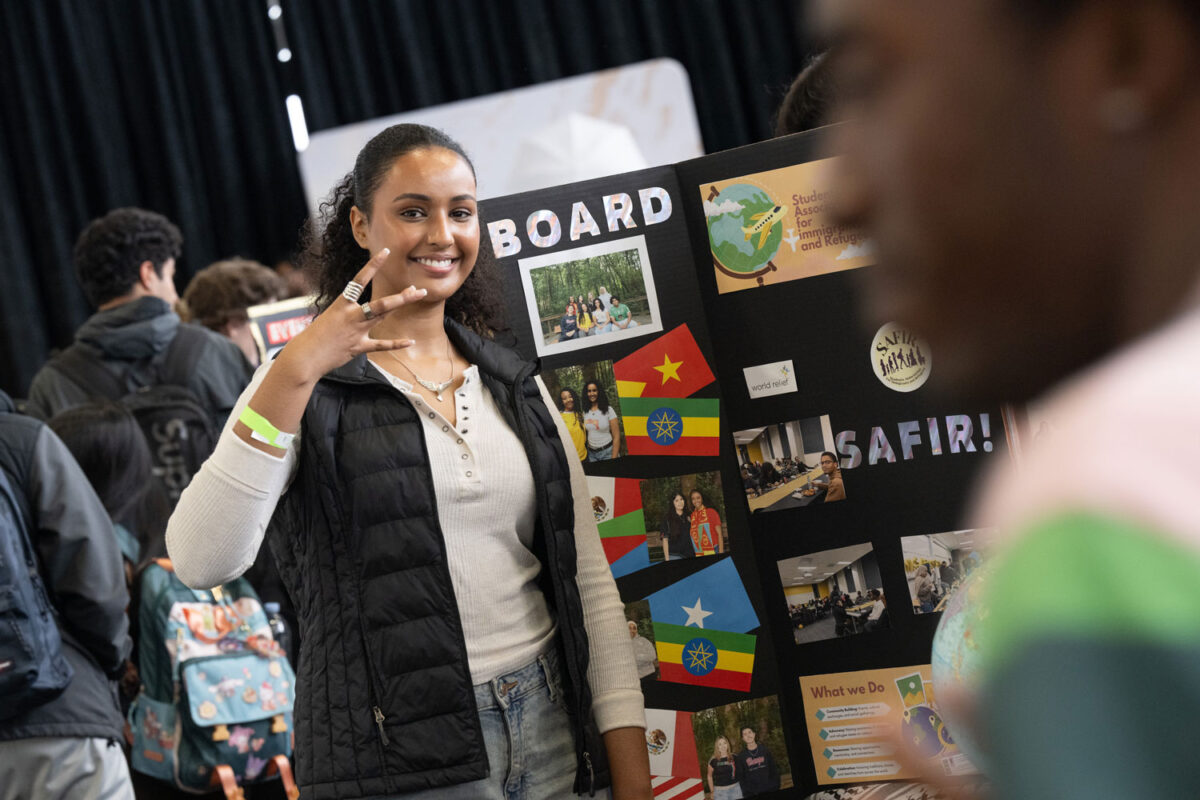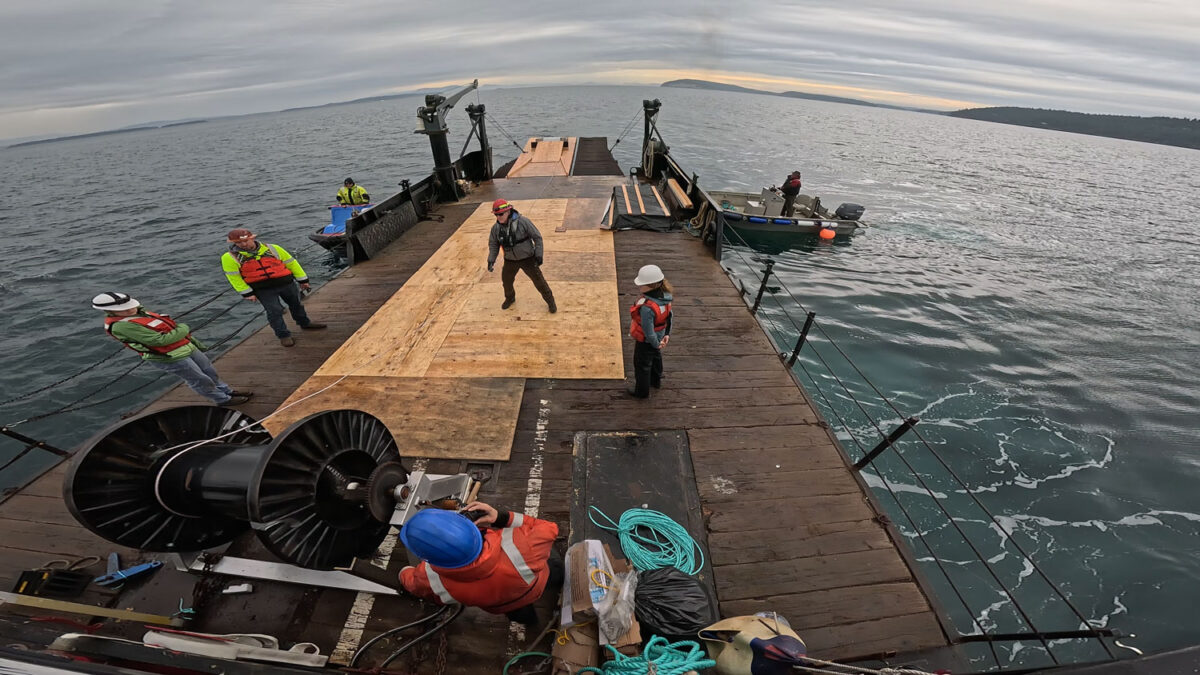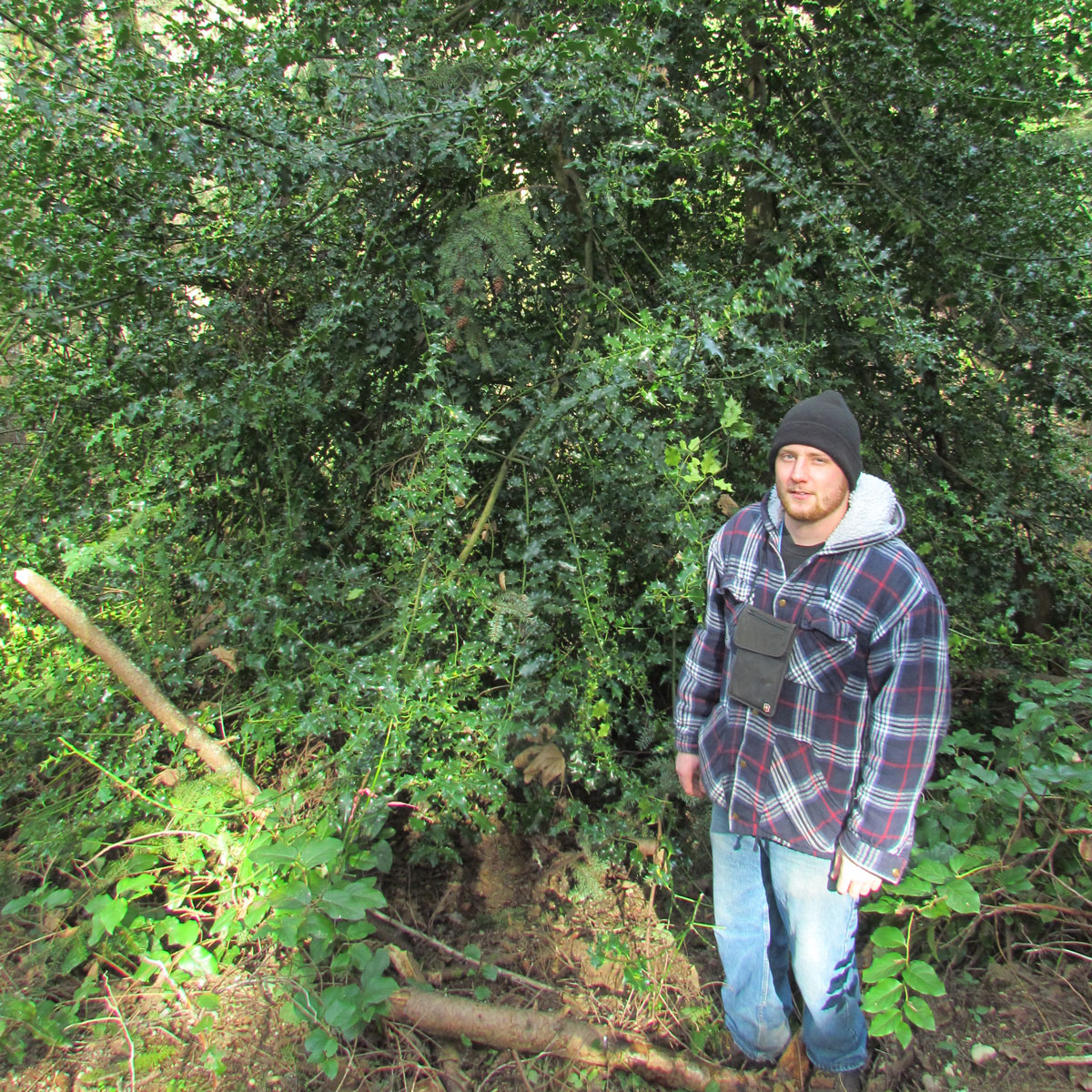How is work in Prevention, Health & Wellness?
Val Tovar, director, answers a few questions from Maria Lamarca Anderson, UW Bothell director of communications.

Q. How do you try to innovate?
A. One of the ways I like to innovate is through creating workplaces where leaders build on their team members’ strengths through strategic planning and create trauma-informed practices into everyday work life. I like weaving in wellness practices into team culture by modeling taking breaks, using sick time and talking about mental health in the workplace to protect our energy so we can do this important work.
I love asking why and helping my team utilize their expertise in their roles so they can shine! I try to name when the vibe might be off or something is going on because of burnout, oppression, violence or other things outside our control, etc. I like to provide space, even just a couple of minutes before a meeting, to name how we are feeling and how it impacts our work.
Lastly, I try to adapt to new conditions by using humor, listening and connecting with others.
Q. What is the core of your work?
A. The core of my work is connection, care and curiosity. I strive to create partnerships and connect with multiple partners to support our work on campus. I cannot do this work alone, and we cannot fully support students if we cannot work together. I believe in holistic and inclusive care for students so they can thrive instead of just survive their college experience.
Lastly, I want to always remain curious of what could be instead of saying, “This is how we have always done it.” We cannot grow without being curious, and we cannot thrive without adapting to the times. For me, curiosity is so important to my core because I never want to stop asking, “What if?” because those ideas are what create opportunities for innovation.
Q. How do any or all of UW Bothell’s three strategic priorities fit into your work?
A. In my work, creating a safe and supportive environment is everything. One of the ways UW Bothell’s strategic priorities weave into my work is through increasing community belonging, especially for those from historically marginalized communities.
To create a sense of belonging so people can feel safe to talk about violence prevention and response, we must shift the culture from individuals to community. One of the ways I do this in my work is by connecting with people on campus and seeing how we can support each other. This can look like providing scripts and resources for when a student discloses harm, consultation on incidents and procedure additions for working with survivors. My goal is to offer multiple ways to access care and ways to reduce harm instead of perpetuating it.
Regarding enhancing cross-disciplinary teaching and scholarship on campus in my work, I want to continue to find ways to connect prevention, health and wellness into multiple offices and departments on campus. One of my goals is to create more learning opportunities for staff and faculty to learn from each other. This can look like classroom visits, inviting staff and faculty members to share their expertise in team meetings, and hosting training workshops around procedures for different offices.
A priority I enjoy in my work is enhancing community and campus engagement. I love providing professional learning for staff and faculty on campuses because we do not have enough opportunities. Learning together helps us to feel less alone and to practice what we learn as a community which is a part of caring for each other. In my work this looks like creating tool kits with up-to-date information for faculty and staff, facilitating a staff training on trauma-informed office practices and supporting the implementation of affinity spaces on campus for BIPOC staff and faculty to find solidarity.
Q. What are you working on today?
A. Currently, I am working on modeling rest for my team and community — and carving out times to dream about what can be.
I am working with the staff in the Health & Wellness Resource Center (HaWRC) and Violence Prevention & Advocacy (VPA) as we merge under one office called Prevention, Health & Wellness. The HaWRC is a one-stop shop for wellness, sexual health and basic needs resources and referrals. The VPA provides confidential advocacy support, referrals and violence prevention education. This new office structure will create a more trauma-informed and accessible referral and resource process for students.
Additionally, I am working on ways to support Black, Indigenous and other students of color, LGBTQIA+ students, neurodivergent students and students from historically marginalized communities on campus. My goal is to find accessible methods to collect data from students in order to advocate for funding and resources regarding prevention, health and wellness on campus.
Q. How does who you are show up in your work?
A. I am a big, loud woman of color who was the first to graduate college and the first to go to therapy in her family. I have been described as tenacious too many times to name, and, just like Megan Thee Stallion I have high anxiety, so I take a lot of breaks by myself to refocus.
I like to meet people where they are and find ways to make them feel welcomed. My experience started in advocacy, and I am still an advocate at my core. I like to do what I can to leave people better than I found them and create access points to reach the most vulnerable.
Q. Where is your favorite spot on campus, and why?
A. I really love the North Creek Trail, and my favorite spot is this bench that is down the hill from Founders Hall. On days when I need a quick break, I walk down there and do breathing exercises while looking at the trees!
Q. What is your favorite thing about working at UW Bothell?
A. My favorite thing about working at UW Bothell is that we share a campus with Cascadia College. I think we have such an incredible opportunity to create a diverse and inclusive community with students, staff and faculty. The partnerships I have made so far with both UW Bothell and Cascadia College have been encouraging, and I look forward to seeing what we can do.



